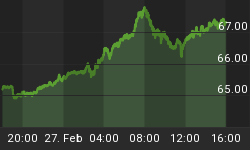Why Read: Because possible (read likely, or even 'virtually certain') contagion issues arising out of a Greek Eurozone exit will be important to you - whether you invest in the financial markets or you don't.
Featured Article: An important article with a 17 slide PowerPoint presentation was published recently by Business Insider. Said to have been generated following review of "several months of research", the following overviews conclusions set out in the presentation. In summary, among other things, the presentation suggests that if Greece exits the Eurozone:
-
Greece will pass exchange rate laws for a 'new drachma', and will prevent outflows of bank deposits. In turn, it is suggested this would contribute to a "massive" black market for the "new drachma";
-
the "new drachma" would collapse in value against other fiat currencies;
-
Greek political and societal unrest will proliferate;
-
the European Central Bank would face contagion difficulties, as would Eurozone Country Central Banks, to the point the respective solvency of some could be threatened;
-
Greece GDP could be drop by as much as 50%;
-
contagion could result in large outflows of deposits from Italian and Spanish banks;
-
the European Central Bank might adopt measures toward fiscal integration of the Eurozone;
-
the European banking system might of necessity infuse more money into the Greek banking system;
-
the Euro would likely devalue against other fiat currencies in the short term, but less so than the "new drachma"; and,
-
Enhanced litigation between Greece and foreign lenders could ensue.
Commentary: Whether you invest in the financial markets or not, you ought to:
-
read the short overview that precedes the slide presentation;
-
review the detail set out in that presentation;
-
think very hard about what you read;
-
consider contagion and collateral economic damage issues; and,
-
Discuss your own conclusions arising out of that process with your financial advisor(s), and with your most financially astute friends and acquaintances.
Given what is going on in the Eurozone - particularly with reference to Greece and Spain - but also with reference to France, Italy, Portugal, and The Netherlands to name but four other Euro countries, things seem to be increasingly spinning out of control. At least it seems that way as evidenced by the ever increasing number of daily media reports, and the content of those reports.
GET READY: This Is What Happens If Greece Exits The Euro
Source: Business Insider, Simone Foxman, May 17, 2012
Reading time: 6 minutes, thinking time much longer
You might also want to read on the same topic:
Economists React: What if Greece Exits the Euro Zone?
Source: Wall Street Journal, Real Time Economics, Katie Martin, May 18, 2012
Reading time: 4 minutes
What Will a Greek Default Mean for You?
Source: Financial Sense Blog, Jeff Rubin, May 17, 2012
Reading time: 3 minutes















